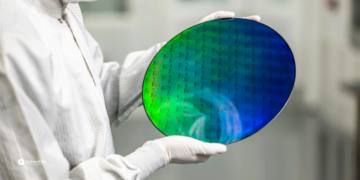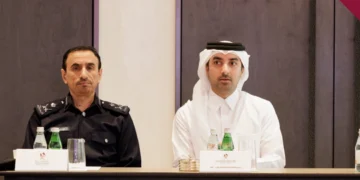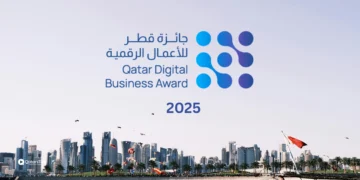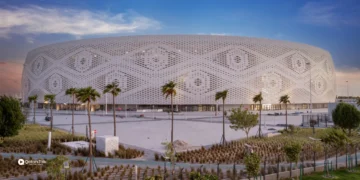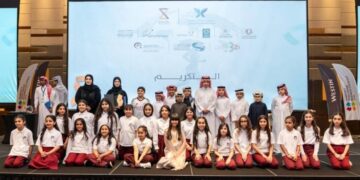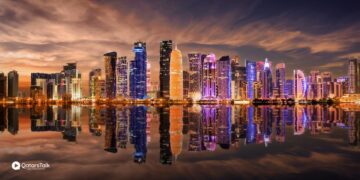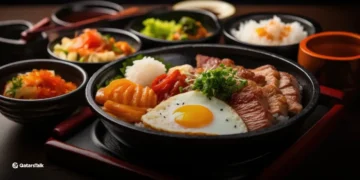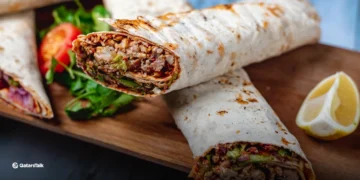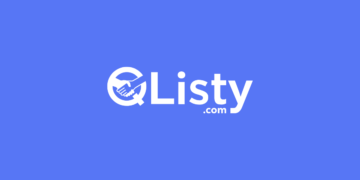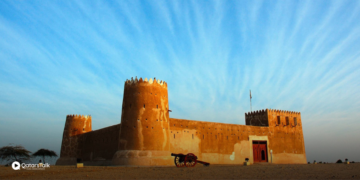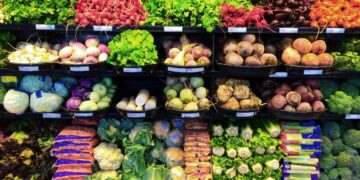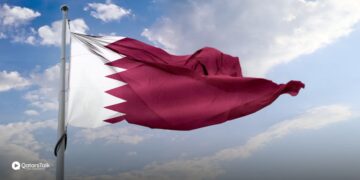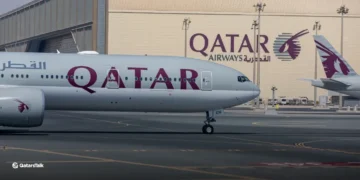Halil Erdem shares his entrepreneurial journey from the United States to Qatar, revealing how strategic vision, cultural integration, and a passion for Turkish products helped build one of the country’s most trusted FMCG and construction brands.
In this special edition of Expat Entrepreneurs in Qatar, QatarsTalk sits down with the founder and CEO of Halil For Trading, one of Qatar’s leading distributors of Turkish food products and a rising player in construction materials.
From modest beginnings in the United States to becoming Qatar’s leading distributor of Turkish food products, Erdem has navigated shifting markets, regional dynamics, and global crises with strategic foresight. His company now bridges two sectors, FMCG and construction materials, serving top-tier hospitality clients and major development projects across Qatar.
In this candid conversation, Erdem shares his entrepreneurial journey, the lessons learned from operating across borders, and why he believes Qatar offers unmatched opportunities for those ready to build with purpose.
Highlights from Halil Erdem’s journey
Built market leadership in Turkish FMCG in Qatar after expanding from the United States in 2016.
Strategic diversification into food supply during the 2017 GCC crisis and COVID‑19 safeguarded growth.
Focus on localisation and production to unlock exports to GCC and Europe in the next five years.
Teamwork over autocratic management across a complex FMCG supply chain.
AI used for product development, brand ideation, and recipe creation to reduce turnaround time.
Two coffee brands Made in Qatar planned, targeting exports from 2026.
Key Takeaways:
- Halil Erdem, a Turkish-born entrepreneur, is the CEO of Halil Trading, a leading FMCG and construction materials company based in Qatar.
- The company began in the United States and expanded into Qatar in 2016, gaining market leadership in Turkish food products.
- Erdem highlights Qatar’s strong potential in local production, predicting increased exports to GCC and European markets in the coming years.
- The 2017 GCC blockade and COVID-19 both shaped the company’s trajectory, accelerating its shift into food supply and proving the value of diversification.
- Emphasising teamwork and adaptability, Erdem views business as a long-term journey requiring deep personal commitment.
- Halil Trading is preparing to launch two Made-in-Qatar coffee brands, aiming to export globally by 2026.
- Erdem encourages new entrepreneurs to prioritise feasibility studies and shift focus from trading to production to unlock future growth in Qatar.
Q: How did Halil For Trading begin, and what shaped its early evolution?
Halil Erdem: The idea for Halil For Trading dates back to my high school years. It came to life after I moved to the United States in 2002. I initially settled in Virginia, near Washington D.C., where I laid the groundwork. In 2004, I officially started the business in the U.S., focusing on construction and agro-commodities.
My journey brought me to Turkey in 2011 and then to Qatar in 2013, where friends I had met in the U.S. encouraged me to explore opportunities. The company began taking shape in Qatar around 2016, in partnership with a Qatari national. What started with construction materials soon expanded into fast-moving consumer goods (FMCG), particularly Turkish food products, which were relatively underrepresented in the market at the time. That gave us a strong first-mover advantage.
Q: What made the Qatari market so compelling for an international entrepreneur?
Halil Erdem: When I arrived in 2013, Qatar was in the midst of rapid transformation. The entire country resembled a construction site, energetic and full of potential. Compared to the U.S. market, which is large but saturated, Qatar offered open ground for new businesses willing to take initiative.
Today, even though the post-2022 market is more settled, there is enormous potential in domestic production. I believe Qatar is shifting from an import-driven model towards a production and export economy. Within five years, I foresee exports from Qatar growing significantly, starting with the GCC and possibly reaching global markets.
Q: How did the 2017 GCC blockade affect Halil Trading?
Halil Erdem: Initially, it was a shock. I remember waking up in my hotel room and hearing the news. But that period became a turning point for us. The demand for Turkish food surged, and we pivoted quickly to meet that need.
This shift not only accelerated our entry into the food distribution sector but positioned us strategically within the hospitality, retail, and catering segments. Turkish products offered high quality at competitive prices, which helped us scale rapidly.
Q: What about the impact of COVID-19?
Halil Erdem: Like most companies, we were affected, especially because we also have operations in Turkey. However, diversification saved us. If we had been solely in construction, the disruption would have been devastating.
The food sector, being essential, continued operating under exceptions, and we were able to maintain supply lines and support the local market. That crisis reinforced our belief in diversifying sectors and product lines.
Q: What do you believe are the most critical traits for navigating business challenges?
Halil Erdem: I have been in business for 24 years. Apart from a short stint at Volkswagen in the U.S., I have always been self-employed. You need the DNA of an entrepreneur, resilience, consistency, and the ability to sacrifice.
Business is the most competitive sport. You must be ready to work 100-hour weeks, travel extensively, and make personal sacrifices. The reward is not just financial; it is the growth you experience and the lessons you can pass on to future generations.
Q: The FMCG sector is extremely competitive. How do you approach strategy and product selection?
Halil Erdem: FMCG is not a field for autocratic management. Success depends on building and sustaining a collaborative team. Even the most capable person can only effectively manage ten people at most. In this business, the supply chain has many links, and if one fails, the entire system is affected.
In Qatar’s compact market, product diversification is essential. To thrive, you must offer items suitable for all meals of the day, breakfast, lunch, and dinner. If your offering is limited to one segment, you will not be able to scale.
Q: What were your biggest challenges when starting Halil Trading in Qatar?
Halil Erdem: Culturally, as a Turkish entrepreneur, I never felt like an outsider. The cultural similarities helped a great deal. The biggest challenge has been the size of the market. You must be flexible, wear many hats, sometimes you are the owner, sometimes the manager, and sometimes the motivator or coach.
This multi-role agility helps build capabilities that are useful when expanding into larger markets, such as Saudi Arabia, where competitors may be more one-dimensional.
Q: What trends are shaping the FMCG sector over the next 5-10 years?
Halil Erdem: Qatar closely follows global consumption trends. What becomes popular in the U.S. or Europe quickly appears here. The key competitive edge now lies in localisation, those who produce locally will dominate.
Given Qatar’s infrastructure, labour cost advantages, and improving logistics, the country is poised to become a serious exporter. I see many local cafes and retailers now planning international expansions, which was not the case a few years ago.
Q: You are known for your passion for coffee. How did that begin, and how has it shaped your business?
Halil Erdem: Coffee is unlike any other product. You cannot engage in the coffee business without genuine knowledge and passion. I have studied its history, from the first coffee house in Istanbul, founded by two Syrian merchants, to its global evolution.
We are currently the distributor of Mehmet Efendi, the most recognised Turkish coffee brand, in Qatar. Recently, we have taken steps to launch two coffee brands produced locally in Qatar, one focused on traditional Turkish coffee, the other on espresso beans. The goal is not just to serve the domestic market, but to eventually export Qatari-produced coffee to Europe. This may sound ambitious, but we believe the combination of quality and competitive pricing will set us apart.
Q: How is Halil Trading using technology, especially artificial intelligence?
Halil Erdem: Technology is embedded in our operations, particularly because we are active across multiple countries. We use AI for product development, brand ideation, and even creating new recipes. It has helped reduce turnaround time, improve efficiency, and cut costs.
We are not using AI just for the sake of innovation; it is integrated into the workflow. The more familiar our team becomes with these tools, the more value we extract. Whether in Turkey or Qatar, our teams now rely on these digital systems to coordinate complex operations across departments.
Q: What guidance would you offer to entrepreneurs entering the Qatari market?
Halil Erdem: My strongest advice is to conduct a detailed feasibility study before making any commitments. If you have multiple options, prioritise production over trading. The direction Qatar is heading, towards local production and added-value manufacturing, offers long-term strategic advantages.
There are growing incentives for local manufacturing, whether in food, materials, or consumer goods. Entrepreneurs who align themselves with this trend will be better positioned for growth and sustainability.
Erdem’s advice for building in Qatar
Start with feasibility
Conduct a rigorous study before committing capital. Validate demand, regulation, and supply chain.
Prioritise production
Shift from pure trading to local production to gain speed, margins, and export options.
Build the team
Replace autocratic management with cross‑functional teamwork across the FMCG chain.
Adopt AI early
Use AI for product R&D, branding, and operations to shorten turnaround and reduce costs.
Diversify offers
In a compact market, cover breakfast, lunch, and dinner to scale consistently.
Think regional
Design for exports to GCC and Europe once product‑market fit is proven locally.
Q: What is your view on Qatar’s support for entrepreneurs and international investors?
Halil Erdem: I believe the Qatari government has made great strides, but there is still room to improve the business ecosystem, especially in attracting experienced international entrepreneurs.
Qatar’s long-term success depends on its ability to draw global human capital. The government should continue creating policies that support this objective. By welcoming individuals with know-how, networks, and experience, Qatar can accelerate its transformation into a diversified, innovation-driven economy.
Q: What are your goals for Halil Trading in 2026 and beyond?
Halil Erdem: For us, 2026 will be the “Year of Coffee.” We plan to scale our coffee production locally and begin exporting to international markets, starting with Europe. The consumer landscape is evolving. Many legacy brands are no longer meeting expectations in terms of quality or innovation.
Qatar has what it takes to offer a superior product, both in terms of taste and price. We intend to prove that by building world-class coffee brands right here in Doha.
Made in Qatar: Coffee brands launching by 2026
Halil Trading plans to produce two coffee lines in Doha, one focused on traditional Turkish coffee and one on espresso beans, with export ambitions to Europe.
Final Reflection
Halil Erdem’s story offers more than a business case study; it provides a glimpse into the mindset of a global entrepreneur who has not only built a thriving company but has done so by adapting to vastly different cultures, markets, and economic realities. His emphasis on resilience, long-term thinking, and the importance of local production speaks directly to the evolving aspirations of Qatar’s economy.
For aspiring entrepreneurs, local and international alike, his insights offer a practical roadmap rooted in experience: understand the market deeply, diversify wisely, embrace technology early, and most importantly, build teams that can endure uncertainty.
As Qatar continues its transformation into a regional hub for manufacturing, logistics, and trade, stories like Erdem’s highlight the value of welcoming expertise from around the world and enabling it to flourish within the country’s unique ecosystem. It is a model that benefits not only the business community but the nation at large.
Business is about resilience, sacrifice, and growth. Financial rewards matter, but the real value lies in who you become and what you pass on. Qatar is a place where such growth is possible, for those willing to invest in its future.

